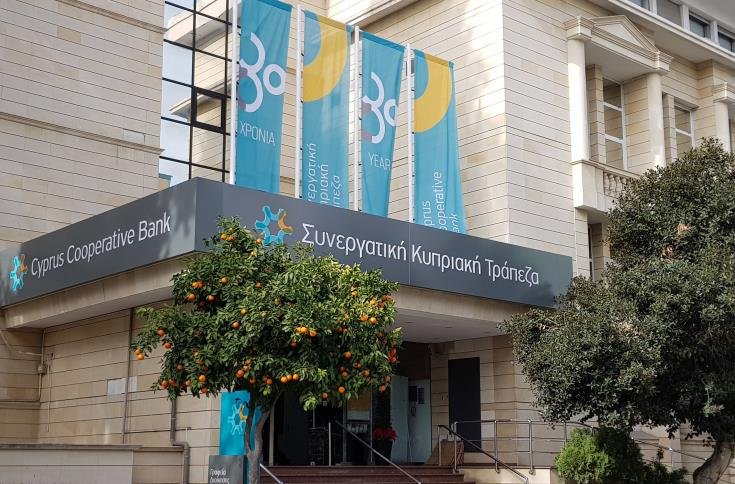The 10 defendants implicated in a loans scandal at the Strovolos Cooperative Bank were cleared of all charges by the Nicosia criminal court on Thursday. There was a total of 48 charges including conspiracy to defraud, obtaining goods under false pretenses, forgery and circulating forged documents and fictitious accounts, abuse of power among others. Apart from three companies, among the defendants were the former general manager of the Cooperative Central Bank and his wife as well as the general of the Strovolos Cooperative Bank.
For context, it should be mentioned that during the meltdown of the economy in 2013 the many co-op units in existence had record numbers of NPLs on their books and the money of the depositors was saved by merging them into one bank and pumping hundreds of millions of euro, received from international lenders, into them. Τhe Cooperative Bank, failed spectacularly to reduce the NPLs it had inherited and was eventually closed down in 2018, at a cost to the taxpayer of €1.75 billion, that could rise to €5 billion.
A public investigation was carried out, supposedly to establish the causes of the collapse but all it did was place political responsibility on finance minister at the time Harris Georgiades, who may have made some bad choices when the bank was taken over by state but had nothing to do with the accumulation of bad debts, stemming from decades of mismanagement, incompetence and negligence. It was this that caused the collapse and not the minister and the government’s mistakes, the biggest one of which was the pumping the taxpayer’s money into a bank that could not be saved.
A little before the closing down of the co-op bank, charges were brought against seven individuals, two of whom had executive positions in two co-operative banks. The case was initially submitted to the Nicosia district court which referred it to the criminal court in March 2018. The idea was that those who had played a part in the collapse should be made to pay, or, as politicians like to say, the public’s ‘sense of justice had to be satisfied. Prosecutors could not pin the collapse on specific individuals so they focused on irregular dealings in the granting of seven loans by the Strovolos Co-op between 1998 and 2007.
In the decision announced on Thursday, the criminal court judges ruled that the prosecution had failed to prove “beyond reasonable doubt the offences it chose to include in the charge sheet,” and acquitted all defendants. It was another fiasco for the state prosecutors, who have failed with alarming consistency to win any case brought against those deemed responsible for the collapse of the banking sector in 2013. They failed spectacularly to prove the guilt of any Bank of Cyprus executive or director, despite tens of millions of euros spent over the years on preparing the cases and bringing experts from abroad to help.
The co-op case was minor compared to that of the Bank of Cyprus, in terms of resources, time and effort expended by the attorney-general’s office, but the result was the same raising many questions. Are the lawyers working at the attorney-general’s office not very good at their job? Has the leadership of successive attorneys-general been inadequate? Are the state legal services staffed with lawyers suffering from the public employees’ disease of no professional pride? Are these failures linked to the judges? Are the judges inclined to show leniency to establishment figures or is there tendency to base their rulings on technicalities rather than the spirit of the law? Do judges not have the training to be confident in their rulings? These are all legitimate questions, for which we do not know the answers, but need to be asked as part of the reform of the justice system.
At a symposium of the law school of the University of Nicosia, former British judge and barrister Lord Dyson, said “there was a cultural problem in the justice process in Cyprus and those involved had to be convinced that a significant change and simplification of procedures were needed as was the case in Britain.” This could also have contributed to the failure of the prosecutions, although the reform of the rules of civil procedures is currently in progress, funded by the European Commission.
Will this be the answer? Nobody knows, but what is becoming very clear is that people will completely lose faith in the justice system, which is already shaken by the unacceptably long delays in the administering of justice, if things do not drastically change. We need a justice system that can deal effectively with white-collar crime, which is not the case at present, given that we want to build the country’s name as an international business centre. The reforms of the justice system, currently awaiting the legislature’s approval may cut delays, but will they make it less difficult to prosecute white-collar offences?







Click here to change your cookie preferences